Crazy Comparison! Leica 50 APO, Sony Zeiss 55, Voigtlander 40 2.8
Hey to all! Happy Tuesday! Just a couple of days until the big Thanksgiving feast and I am lounging around my home relaxing an injured knee (which is improving and on its way to a full recovery). I have had quite a few emails in the past week asking me to compare the Leica 50 APO miracle lens to the Sony/Zeiss 55 1.8. I have done this before but this time it is more controlled and using indoor natural light, which believe it or not was quite dim in reality. I had my blinds slightly cracked open to allow some light to come in and I snapped a basic image to test for out of camera color, sharpness, micro contrast, etc.
THIS IS A “JUST FOR FUN” CRAZY COMPARISON!
Below is a quick size compare. All are smaller lenses that are fairly light and trouble free. The Sony is the largest but light. The 50 APO is compact but solid and the Voigtlander is small and light with the Jupiter being featherweight. NONE are large or cumbersome in any way.
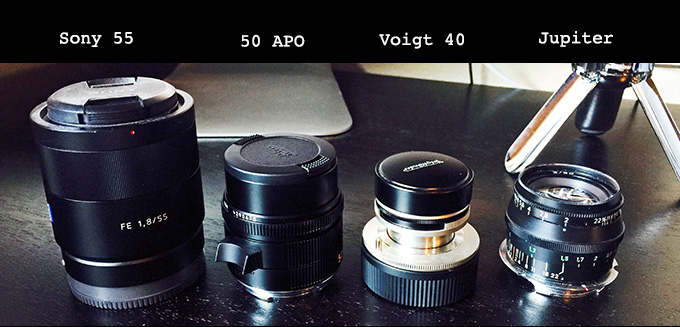
Yep, a $8300 lens vs a $999 lens and then I also threw in the $400 Voigtlander 40 2.8, which is actually a GREAT buy for a very nice lens. I also included the very cheap Jupiter 8 50mm f/2 just for fun. (and it is not bad at all I must say)!
I have been doing Crazy Comparisons since the first week my website went up, and they are always popular but sometimes controversial, which is understandable. ANY comparison that is done will always be controversial as those who own Lens B want to know why Lens A appears better. Those who have lens C will say I did the test wrong and I must have misfocused or those who own Lens A will argue about something. Just take it for what it is, a snap shot at the same aperture for the 50 APO and the 55 1.8 (f/2), Jupiter 8 and one at f/ 2.8 for the Voigtlander, which is wide open for that lens. ALL lenses were manually focused (The Sony was as well for critical correct focusing and to rule out mis focus).
To me, when I click on the images below I see a richer color in the 50 APO as well as MUCH more detail and micro contrast. The Sony/Zeiss flared a bit (no hood on the Sony and the APO did not have the hood pulled out, so no hood on either), was softer and had a less vibrant color. The Voigtlander shows its weakness here against these two lenses and is softer still with less contrast and color depth.
The 50 APO and the Sony A7s is pretty amazing. I mentioned it last week HERE but every time I use this combo I am thrilled with the results, and the cool part is that it is easier to obtain perfect focus on the A7s than it is on the Leica M itself.
Click the images below to see the larger versions with full 100% crops embedded. As it is, the Leica is the better lens. Better made, smaller, jewel like, better optics, better color and flare resistance..but it is 8X the cost of the Sony/Zeiss! EEK! $8300 vs $999. The Leica BETTER BE BETTER! I think the Leica, in the real world, is worth about $4500 but Leica being Leica..well..that will never happen. All I know is for me, Leica makes the best optics in the world. The 50 Lux, the 50 APO, the Noctilux..all special, unique and amazing 50mm lenses. Buying them all would set someone back about $24,000. I know of some towns in the USA where you can buy a house for $24,000 🙂
When the Zeiss Loxia lenses come in I will pit the 50 f/2 against the APO, and I expect that one to be pretty close. See my 50 APO review HERE, see my Voigtlander 40 2.8 review HERE and see many shots with the Sony 55 1.8 HERE.
CLICK THESE IMAGES FOR LARGER and 100% CROP! THEY ARE DIRECT FROM RAW!
The 50 APO at f/2
–
Sony/Zeiss 55 1.8 at f/2 – Manually focused
–
A Jupiter 8 50mm f/2
–
Voigtlander 40 2.8 Heliar at 2.8

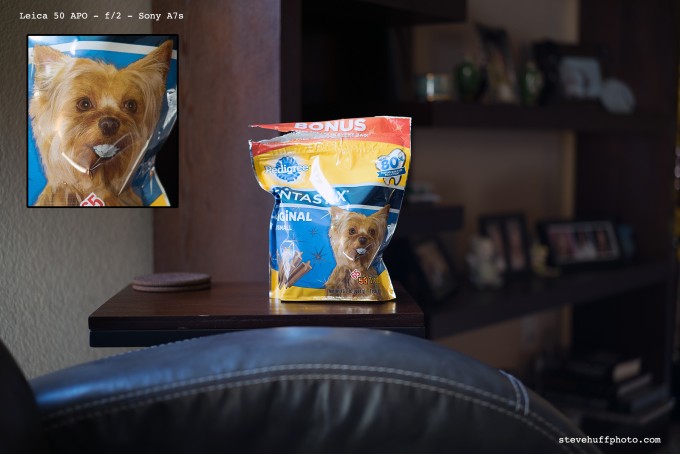
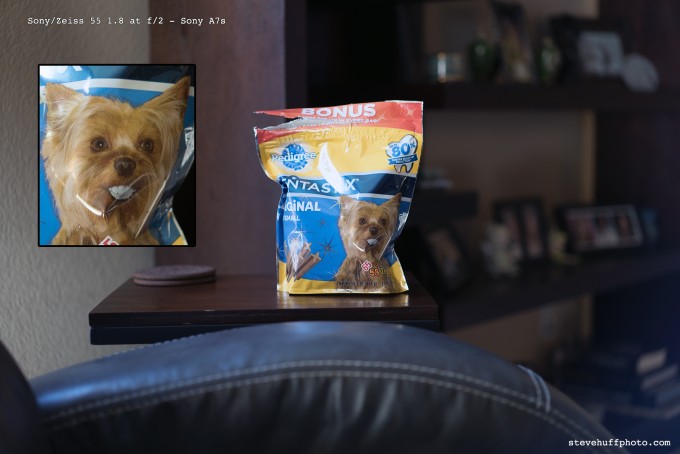
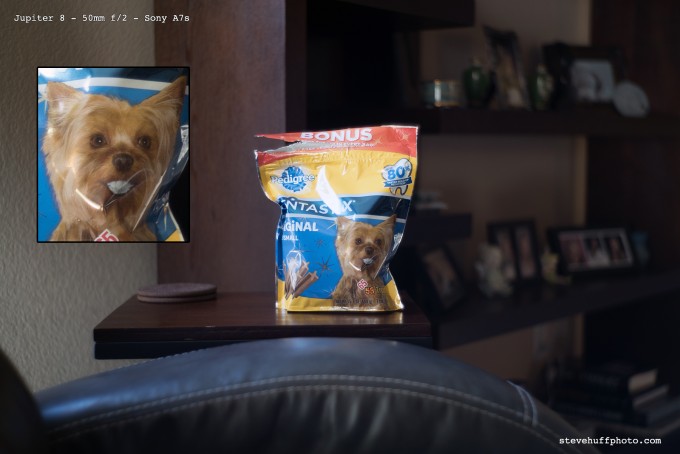
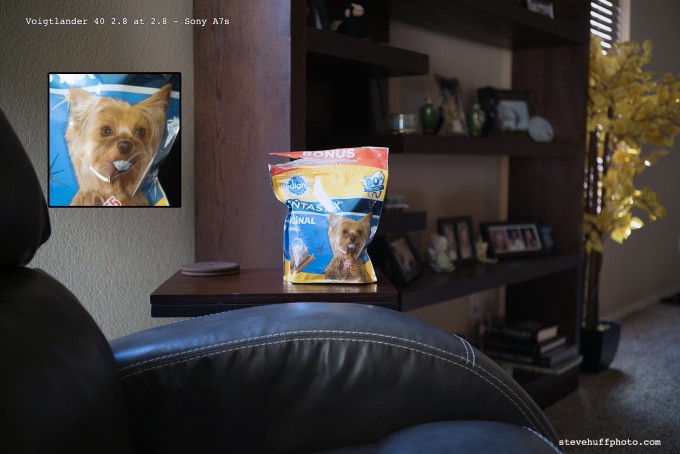


Interesting comparison. I’m sure you used what you had handy but a better Voigtlander to compare would be the 58mm f1.4, which has a better reputation than any of their 40mm lenses.
Oh, and another reason to like Voigtlander is ergonomics. They are fun lenses to use and light compared to most. Photography is just more fun if you have a light easy-to-use lens on your light camera.
Steve… or anyone really; would the lens flare on the Sony 55 account for any of the “washed out color”? (In comparison to the APO, in this case). Or more in general, just curious if flare messes with the sensors ability to accurately read color and contrast in a particular exposure.
Sort of like comparing my M9 with a 50mm Summicron, and my A7r with the FE 55mm, 18 MP (M9) vs 36 MP (A7r), the higher resolving power does provide a richer IQ. My crazy comparison with the gear I own.
Can we see a crazy comparison between the APO and the Sonnar on the A7s focused at an infinity landscape shot? Would like to see if edge smearing is still present with the APO. It’s a darn shame most Leica glass won’t work at the edges on the A7’s.
There is zero smearing on the A7s with my 50 APO, my 50 2.8, my 35, etc. The A7s works just as good as the M for 99% of M mount glass. The A7S not the A7 and A7r.
The APO is pretty amazing, but then so are all of the Leica 50s. From the $10,000 Noctilux to the $1600 Summarit, all are gorgeous.
My weapon of choice (when not playing with vintage Sonnars and Jupiters) is the old non-APO 50mm Summicron. The oldest lens in the Leica catalog and the last Walter Mandler design, it still hands with the big boys and has a gorgeous look all its own.
this a very primitive way to compare the lenses. According to this test 99% of all available lenses fall into two categories – very good and perfect which is far from the reality .
How does the Voigtlander 50mm f/1.5 Nokton ASPH fare in the mix?
T.
The Leica looks amazing. I suppose it’s the kind of lens you buy to use for the rest of your life and hand down to your son or daughter on your deathbed.
I like the Sony as well. A more realistic choice i suppose.
I’d love to see you compare the better micro four thirds lenses to some of the 35mm ones you have as I’ve pretty much decided to add a micro four thirds system for my weekend travel shooting. I shoot mainly on DSLRs and also my Sony RX100iii is always on me.
Styles makes lenses.
That is
Some styles of photography require the best lens.
Some styles of photography don’t require the best lens.
And do those treats really make your poochie’s teeth so bright white ??
When I try to compare photos, I keep getting put off by that silly grin !
Steve, it would be interesting if you increased the contrast on the picture taken with the Jupiter 8 just to see how it would fare with the other more ‘modern’ lenses. The other lenses have more contrast which is normal for multicoated lenses.
Frankly can’t see much difference except the DOF of the Voigtlander lens when you look at the pic without the 100% crop!? The Zeiss looks cooler in tones but they are all pretty sharp come on.
better saturation on the APO, then all else is questionable. I’ll take the Ziess (Autofocus, why NOT), a new motorcycle, and a nice week long trip to Cabo San Lucas than you very much!
I don’t doubt the apo is a better lens, but in the uniform color areas you can see more grain too, or you did shoot at higher iso or you increased the sharpness of the photo in post, when you do test like this is better to keep the full exif in the photo (also the one used in the raw conversion) and upload the crop in different images.. just saying..
ISO was different, ISO 6400 I believe.
But do you really think you will see a difference, when the photos will be as a print at the wall?
I doubt that you can see a difference between the sony and the leica
You can see a pretty nice difference, mostly in color richness, same when using it on the Leica M.
It’s true that different lenses have different color signatures, but in this digital age, that no longer seems like a reason to pay such a huge premium. You can add whatever color richness, etc, in post processing. This is especially true if you’re using a sensor like the Nikon D810 or Fuji X series that resists file quality degradation when the files are being pushed.
On the Leica, to maintain highest quality, you may have to go with an APO, as the sensor is inferior, but I would hope that at lower ISOs you can just crank the saturation or the vibrance and get the desired “richness.”
Not possible to recreate the look of a 50 APO or 50 LUX or 50 Noctilux in PP. You can to create micro contrast, detail or bokeh to match them.
STEVE, you must be kidding, this is not very serious to justify these lenses just by these very simple images! Please, don’t Forget, and include the OTUS glasses, when you’re talking about the world best glasses!
You must not be familiar with my “crazy comparisons”…OTUS lenses, I have discussed them many times but they are 4-5X larger. Huge beasts that I personally would never buy or use just because they are too large.
You have talked about the “optical qualities”, and NOT about the SIZE and WEIGHT of a lens! Come on Steve, be fair, this is a weak statement, and we as readers of your site, have I believe, more knowledge of photography!
??? Let us see. The 50 APO is smaller than the 55 1.8 but heavier. The Voigtlander is smaller than the 50 APO but not by much. Size wise, these are all pretty small lenses so it is a non issue. The Jupiter is a little smaller than the APO. All are small and none are large or heavy. This is an OPTICAL comparison as are all of my crazy comparisons. If one of the lenses were large or heavy or an issue, that would have been mentioned. Your statement makes zero sense.
Sorry, Steve, but your “huge beasts excuse” makes no sense for me! And further, LEICA makes the best optics in the world??? I guess, you should know much better!
Ummm. yes. Leica makes the best glass for 35mm format in the world. Period. Huge Beast? Yes, that is the Otus lenses, they are MASSIVE, HEAVY, HUGE, LONG and UNRULY for every day or street use, and yes, you are correct.. I know what I speak of.
Good to know, that you’re the one and only expert for lens quality judgements! Retrofocus lenses of this superb quality, cannot be designed smaller, even the new excellent SIGMA ART lenses are knowing that! RF lenses are generally much easier to design, because there is not mirror housing blocking the light rays distance to the sensor. You might better saying, Leica makes one of the best RF lenses in the world. That sounds much better! Period!
Steve, if you could tell from memory whether you think the Otus 55 has a similar rendering to the Sony Zeiss because people keep comparing these lenses as almost equal. The Leica lens is the undeniable winner here.
I would hope the Otus 55 is better than the Sony 55 1.8. The Otus 85 is phenomenal and in another league. I have yet to try the 55.
The exposure on the APO is slightly lower than on the Zeiss, so you get deeper blacks and the contrast looks higher. Also, it’s clearly a warmer lens. I’d argue that the Zeiss is more of a neutral look that you could easily adjust in lightroom to look like the Zeiss. Warm is great for some situation, but just as many people like to shoot raw to add their own curves, contrast, etc, I’m sure a lot of artist would prefer a more neutral lens in order to be able to add their own look in pp.
It’s a crazy comparison, not a scientific experiment, so I get it that we shouldn’t get too carried away, but it seems like a lot of you are getting excited about simple exposure difference and a slightly warmer color rendition, either of which can easily be accomplished in pp or by using exposure comp on the camera itself.
It is a misbelieve that you can easily make Images look like they were shot with a 50 APO. Same is true for Images taken with the Leica Monochrome. I often hear People say that they could do it all in post but they just have bad eye sight. If you are deaf you will never understand why some buy a stereo for several thousand dollars. A good Song is a good Song no matter on what stereo you play it, but for some it still makes a big difference.
Nice one Steve, you shouldn’t have labeled these like and run a contest instead, like you have done before.
I could see the difference in 3d Ness on my mobile. so Cron is good if one can afford, but not worth selling the house and being in the dog house. 🙂
Hope your knee gets better.
Steve, I just tried the APO 50 on my M240 and A7s. Lens is lovely on both. From an image perspective, the all Leica combination has a different quality than the APO/Sony combination. I think I like it a bit more. Colors seem to be a bit richer yet before any post processing (except what Lightroom does.
I love your “Crazy Comparisons” Steve, always good fun!
Not complaining, but it’s a pity you didn’t have a Zeiss 50mm Makro Planar around, as I think that’d be an even better match to the Leica …though that APO is tough to beat!
I have used most all lenses, even the 50 Makro Planar. Cant beat the APO, period. The APO is the best 50mm I have ever shot with when used on the Leica or the Sony.
Steve, the Voigtlander is a different focal length. You probably should have moved the camera forward with Voigtlander to make it a fair comparision, right? I am thinking of buying this lens after reading your review, but now I am a little hesitant:)
The Voigtlander is a great lens, and $400. The APO is $8300. or $7,900 more. It will NOT equal the Leica in any way, shape or form. For the price, there is nothing better.
What about at f/8?
To be honest the jupiter is what I find most impressive here when you conpare the fact the lecia is £8999+ so you expect good, but the £20 jupiter, not bad at all…
The Jupiter is really good and adapts well on Fuji/Sony (FF+APS-C) and mft ,-)
The Jupiter is fantastic on a Leica too, if its calibrated.
I have a wartime Zeiss Sonnar (the lens the Jupiter 8 copied) with lots of wear on the coating, but still produces fantastic images with a low-contrast film look on my M Monochrom.
The faster 5cm f/1.5 Jupiter 3 is even more impressive. Steve had an article on this site about Jupiters, which prompted me to hunt down the guy who tuned them (Brian Sweeney) to get mine. A tuned Jupiter lens is well worth the effort, but will cost a few hundred dollars for a good one.
Good info, thank you ,-)
I have a pretty good copy of a Jupiter-8, an OK Jupiter-9 and a soso Jupiter-11.
I’m usually not pixel looking, but For me Zeiss 55mm. is better. The picture is just a little more dark, but it seems to be the sharpest.
Yes and I can see 5 extra doggy treats in the bag with the APO ! Amazing !!
Hi, Would suggest to buy the Jupiter and use the rest of the cash to go on a nice holiday to capture some worthwhile pictures.Sorry, lens quality does not necessarily make a good photo. Subject, lighting and the right moment are more important.However there will always be status symbols.
What an odd comment. What you say is true, but is not really connected to the post at all. It makes me feel you don’t understand the point of the Crazy Comps.
Happy shooting.
Please explain? What is the point of shooting a pack of dog biscuits in a poorly light room with four different lenses with a view to making a realistic comparison of quality. Crazy yes! but realistic comparison No! However, it certainly stimulates some questionable discussion. Don´t get me wrong, I like Steve´s site and he covers some interesting aspects of photography, but lets separate the serious from the bizarre.
Lol..well, my “bizarre” comparisons have been going on for 7 years now, and are usually the biggest traffic getters of the week 🙂 They are REAL world compares. Not everyone who shoots with a camera does so in a studio or perfect lighting. In fact, more shoot in situations like this that anything. Lower light, etc. This is just as valid as shooting a person outside or a landscape. Shows exactly what I have said from day 1 about the APO.
True, I have the Zeiss but now want the APO. Can you sell children? 🙂
Really? I thought if I spend 5k for a lens it would make me a better photographer
Tom,
I thought that by buying expensive chefs’ knives I’d be a better cook. I was so disappointed, but found I could cut myself more easily – they stayed sharper for longer!
And I have this exquisite stove and still I am burning my pizze.. Hmhmhm.
Nice one. There must be something within some of us that says the better the kit, the better I shall be. Must buy myself an F1 car.
i can see a great difference even on my ipad without enlarging the images. Of course the 50 apo is one of the best 50 one can buy but i never thought it would be so obvious. The Jupiter 8 is a fine lens for the price you pay for it. even more value than the good Voigtländer.
This is one of the first crazy comparisons where the differences are so clear. That Leica APO is amazing.
The 55mm looks slightly more front focused. Also the 55 tends to be cooler than the marker leica
The 55 was critically manually focused. It is not front focused at all. All images were focused on the same point.
The APO is simply better, I thought the good dxo shapness score of the zeiss was making it a winner, I was wrong !
Add the Voigtländer 50mm 1.1 ,-)
And: I dig that Jupiter!
What also would be nice, adapted on a Fuji:
– Fujinon 56 1.2 (APD) – CHF 900 (1390)
vs.
– Leica – CHF 7850
– Otus 55 1.4 – CHF 3950
– Voigtländer 1.1 – CHF 1100 (already own this plus the 50 1.5)
– Voigtländer 2.8 – CHF 410 (just received mine)
– Jupiter-8 – CHF 30-50, inkl. an Ukranian Zorki4 (via ebay, already own this combo)
??
,-)
CHF=what they cost about in Switzerland
You won’ t see a difference… 🙂
It’s obviously not the best, but for what it is the Jupiter is great. The problem with them is the quality is so variable that you may need to go through a whole bunch before you get a decent one.
So while one is cheap, if you need to keep on buying them to get a good one, that adds up. And if you look at the Jupiter 3 (50mm 1.5 Sonnar copy) they now are running at about $250-$300 in the US, with no guarantee of getting a good one.
As for the Leica APO? It is the best 50 class lens ever made. Some people claim the Otus is better, but head to head testing shows this is not the case. The Leica is superior for a fraction of the size. There is a reason it is so expensive.
http://www.imaging-resource.com/news/2014/06/05/which-50mm-lens-is-the-best-lensrentals-roger-cicala-set-out-to-answer-this
Huss,
There is a potential problem with interpreting the data in the link. When Lens Rentals tested some lenses on a Nex 7 the MTF 50 data for the Summilux f1.4 were no where near the figures we now see in the link, which is again stated to be MTF 50, and in fact in the Nex7 test, the Summilux barely made it to 4 figures even at f4, 1020 centre, being narrowly beaten by the lowly Sigma 30mm and which clocked 1040..
To make any sense of the two sets of data, Lens Rentals would need to explain the differences by the testing methods used.
I’m not sure those LensRentals numbers are reliable. If you look at both charts (widest aperture and f/2.0) in the original article, two things seem very odd. First, the 50/1.4 Summilux shows zero improvement at center or middle when stopping down from 1.4 to 2.0, only an improvement at the edge. How is that possible? The Noctilux, Sonnar, Nokton, Art and Otus all show center & middle improvement when stopped down from 1.4 to 2.0, but the Summilux doesn’t? Second, the 50/2.0 Summicron (non-APO) shows exactly the same resolution (1200) at center, middle and edge. Is that even possible? How does a lens at widest aperture produce the exact same resolution at center, middle and edge? Leica’s MTF chart for the 50 Summicron does not show a flat line at f/2.0. While I admire the effort, I can’t help but wonder whether there are one or two errors in there.
My Summilux gets a lot better in terms of Resolution when stopped down. one can even see a minor improvement up to f4.
I have several Jupiter 8 lenses and the quality doesn’t vary as much as many seem to think. They are all very similar and have that typical Pre-war Sonnar look to them with low contrast. Images from this lens look very film like.
It seems to me like the Leica gets less light than the other lenses. I’m not sure the picture is more contrasty. It looks a bit darker. You can see that at the right erea of the picture.
The main difference I see in these pictures is the depth of field of the CV. The shorter focal length and the smaller aperature make a big difference. More than I expected.
I am surprised how much difference. Not only color also bokeh and “3-dimensioalty” if there is anything like this. I guess the 55 comes out worth here than it overall is.
I mean worse not worth
The Leica looks best OOC no doubt, but the colors and sharpness could be fixed for the Sony 55mm in post processing to make it look better. Maybe still not as god as the Leica, but maybe 90% as good I guess.
While there might be small differences in quality and look these images show how the artist is the most important part of any shot. You can get by with inexpensive tools if you work hard and are creative.
Amen, to that!
Absolutely right!!!
As mentioned in this thread, this shows the artist makes the photo, not the choice of lens.
2 minutes with the Sony RAW file in Lightroom and it will look exactly like the Leica.
Of course the Leica is a beautiful instrument to own, and maybe that helps you uncover better images, since photography is an expression of the state of mind, not a technical exercise.
But for me the Leica is a throwback to the film age, for todays digital world I’ll take the A7s and the Sony 55mm
And interesting result. For me, the overall imaging properties of the Apo lens are clear, but in terms of resolution, where camera/subject distance is constant, the Heliar produces a smaller image and is thus always going to be at a slight disadvantage as at selected part of an image, the ;pixel count will be roughly 20% fewer pixels making up that area. This is readily discernible in the relative sizes of the Bonus bag..
Every time I see a comparison like this I am astounded by how great the Leica 50 APO Summicron is. Yes, it’s the price of a nice used car, but WHAT A LENS!!!!
I was just about the say the same thing. I’m astounded by it’s sharpness, it’s colour and it’s tonality. It’s like everything else has a layer of wax over the images.